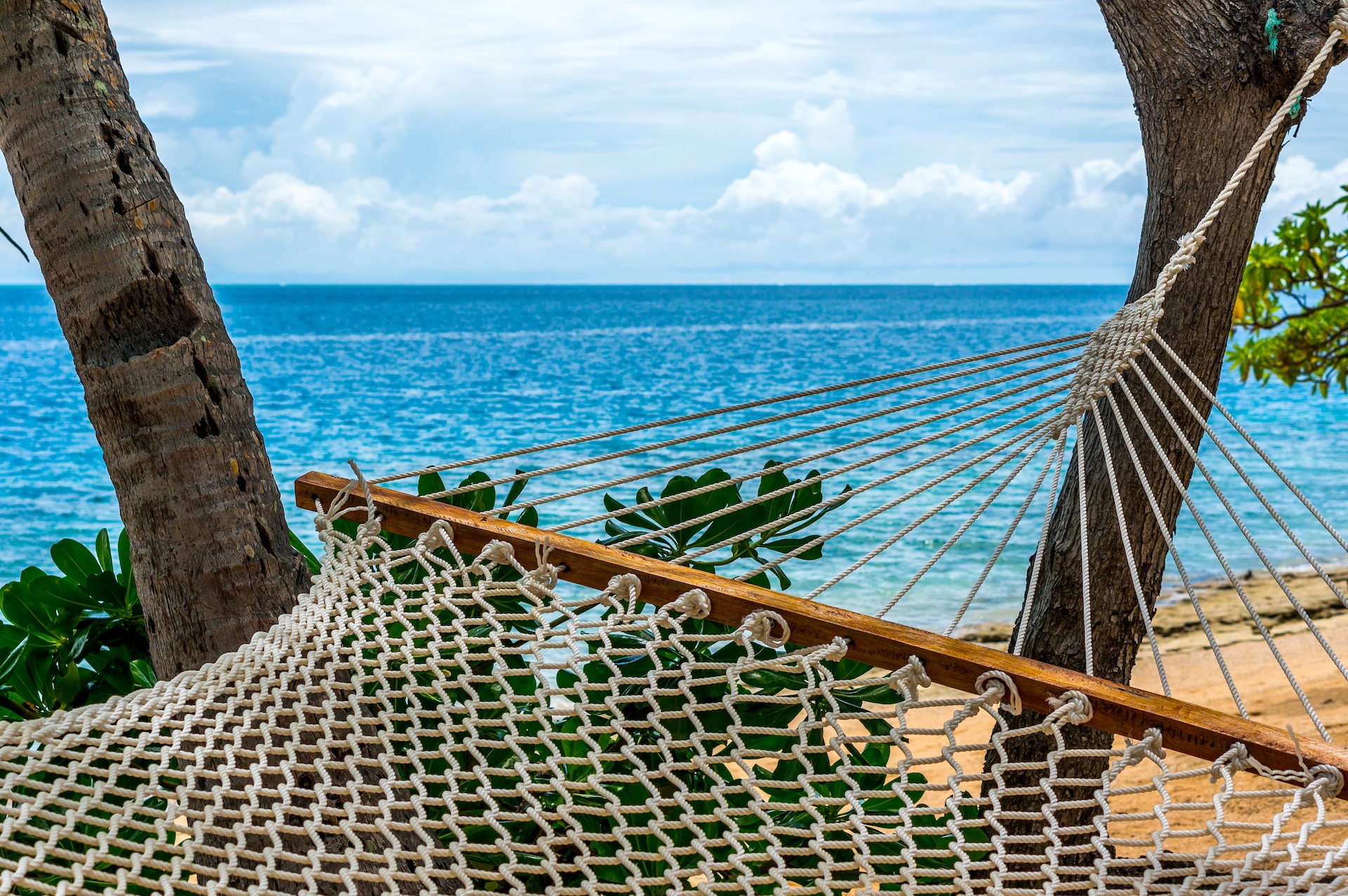
The Weather In Fiji
Fiji enjoys a tropical island climate year-round with most months getting up around 27°C – 30°C (81°F – 86 °F). A gentle trade wind often blows from the south-east to keeping visitors cool and comfortable.
With pleasant water temperature all year round, ocean activities like swimming, snorkeling and diving can be enjoyed in all seasons. Scuba divers can enjoy increased visibility around coral reefs during the Fijian ‘winter’ months of May – October. Humidity drops during the Fiji ‘winter’ months so land based activities are also more pleasant during this time of the year.
When To Visit Fiji
The most popular time to visit Fiji is between late March and early December, with sunny days and a warm tropical climate offering endless options for lazing on white sandy beaches, diving beneath the waves and exploring inland.
Getting To Fiji
Fiji may seem far away, but getting here is fairly easy. Fiji Airways, Fiji’s national airline, has regular direct flights from many international destinations.
| Countries | Direct Flights From |
|---|---|
| New Zealand | Auckland, Christchurch, and Wellington |
| Australia | Adelaide, Brisbane, Melbourne and Sydney |
| Asia | Singapore, Hong Kong and Tokyo |
| United States of America (USA) | Honolulu, Los Angeles and San Francisco |
Apart from Fiji Airways, visitors can also fly to Fiji with other international airlines such as Jetstar, Air New Zealand, Korean Air, Virgin Australia, Air Niugini, Air Vanuatu, Aircalin and Our Airlines.
Nadi International Airport on the island of Viti Levu is the main gateway to the country for most travellers, and several domestic airports are scattered throughout the islands.
A 4-month visa is automatically granted on arrival to visitors from most countries, you can check the list here. All you need is a passport that is valid for at least 6 months beyond your stay and a return ticket home. Those not on this list can apply for one through their nearest Fiji High Commission.
Need Help Planning Your Trip?

Handy Information About Fiji
One word you hear pretty much everywhere in Fiji is “bula”. It’s a traditional Fijian greeting – a way to welcome someone when they arrive, say hello, hi there, g’day or cheers, wish someone good health and even ask ‘how are you’. Here are some other things to know about Fiji & Fijians before your next trip there.
Population And Language
Fiji’s people are among the most varied of all South Pacific nations. The population is approximately 900,000 made up of indigenous Fijians, Indians, Chinese, Europeans and other South Pacific Islanders. English is the official language with Fijian and Hindustani also widely spoken.
Local Customs & Etiquette
It is important to dress modestly when away from hotels and resorts and particularly when visiting a Fijian village. Avoid wearing a hat in a village as it is considered an insult to the village chief. It is also insulting to touch someone’s head. It’s best to not wear shoes if visiting someone’s house. When visiting a village it is customary to present an inexpensive gift of ‘yaqona’ or kava to the “Turaga Ni Koro”, the traditional head of the village. Be prepared to shake hands and answer personal questions as to where you are from, whether married; and, if so, how many children.
Bargaining & Tipping
Bargaining is considered a part of the experience, especially when shopping at fruit and vegetable markets, overflowing with produce, curio and handicraft vendors.
Tipping isn’t a requirement but a little bit of extra payment, for outstanding service, does encourage excellence.
Kava
Called Yaqona in Fiji, Kava is ceremonial narcotic and is more popular than beer in the islands. Pass through any village and chances are someone will be drinking it and they may offer you a bowl, or three. Other than the taste, the process of drinking kava is relaxing: half-coconut bowls are passed to each drinker individually, you clap your hands once and say ‘bula’ (meaning hello, love, and more) before downing it (ideally) in one gulp. This close and social ceremony brings people together while they enjoy the tranquility of the kava. Kava makes people serene, so unlike alcohol, it doesn’t result in drunken drama or boozy brawling.

Good To Know Facts
Time difference: GMT +12 hours
Capital: Suva
Currency: Fijian Dollar
Visas
A 4-month visa is automatically granted on arrival to visitors from most countries, you can check the list here. All you need is a passport that is valid for at least 6 months beyond your stay and a return ticket home. Those not on this list can apply for one through their nearest Fiji High Commission.
Currency And Banking
The Fijian dollar is the basic unit of currency, available in denominations of $5, $10, $20, $50 and $100. Coins are 5c, 10c, 20c, 50c, $1 and $2. Normal banking hours are 9:30am to 4:00pm, Monday – Friday and 9:00am to 1:00pm on Saturdays at selected areas. There is a 24 hour currency exchange service at the arrivals concourse at Nadi Airport. ATMs are located around the country and at larger resorts and hotels.
Getting Around
Getting around Fiji is easy and cheap. There’s a good network of buses, carriers (trucks) and ferries for travel within Fiji’s main islands, and taxis are common. Hiring a car is a good way to explore the two largest islands – which contain 90% of Fiji’s roads – or charter a boat or small plane to get between islands. Fiji is well-served by two domestic airlines which operate between many of the islands, although services are less regular to the outer islands. Yachting and cruising are also great ways to explore the country.
We at The Sun Kissed Islands, ensure that all your intra-island and inter-island travel is taken care of so that you can peacefully enjoy the sights and sounds of this nature’s paradise.
Health Concerns
Fiji is considered free from malaria, yellow fever and major tropical diseases and inoculations are only required if travelling from an infected area. Although there is an effective medical system in place with government and privately run hospitals, clinics, surgical centres, dental service and pharmacies, it is advisable you consult with your local general physician prior to travelling.



